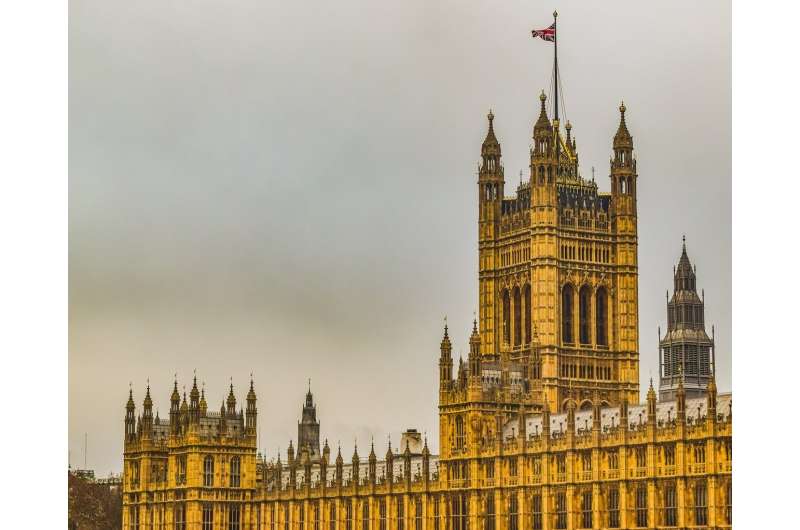This article has been reviewed according to Science X's editorial process and policies. Editors have highlighted the following attributes while ensuring the content's credibility:
fact-checked
trusted source
proofread
UK government urged to tighten public tendering process to fight modern slavery

Companies that have failed to address known cases of modern slavery are winning public sector contracts in the United Kingdom and cannot be disqualified from the public tendering process due to weak legislation, new research from the Universities of Bath, Sussex and the West of England shows.
Current legislation means that public sector purchasing programs are not legally mandated to ask suppliers specifically about their modern slavery risk management, and companies are not incentivized to devote sufficient resources to address those risks, researchers said in the study commissioned by the Modern Slavery and Human Rights Policy and Evidence Center.
Researchers urged the U.K. government to implement a clear mandate across public institutions to address modern slavery risks, strengthen public tendering requirements, and allow the disqualification from public tendering of companies which have failed to take meaningful steps to address known instances of modern slavery in their supply chains.
"Our research shows that expectations on suppliers are minimal with regard to modern slavery—even just a commitment to comply with the U.K. Modern Slavery Act (2015) is sufficient to pass a public sector tender requirement, and evidence suggests many companies subject to the Act have yet to comply," said Dr. Johanne Grosvold of the University of Bath School of Management.
"We recommend that the government introduces clauses into public tender legislation which mandate explicit disclosure of action taken to identify and manage modern slavery risks in operations and supply chains. Those disclosures could be scored against best practice, encouraging suppliers to take actions that can help them in public tendering," Dr. Grosvold said.
For the study—"Climate change and modern slavery in public procurement"—researchers interviewed professionals buying on behalf of, and selling to, the public sector, as well as people with lived experience of modern slavery, who were supported by anti-slavery charity Unseen UK.
"Participants in this study told us that companies are still winning public tenders despite not remedying known cases of modern slavery. And where organizations have taken measures to manage such risks, they are largely driven by individuals or small groups of concerned employees working and organizing often beyond the remit of their role and almost exclusively with little executive support," Dr. Grosvold said.
"Currently, firms can only be disqualified from public tendering if successfully prosecuted for their part in modern slavery cases: This is extremely rare," she added.
Dr. Grosvold said that several participants interviewed in the study had dealt with, or were dealing with, potential and actual cases of modern slavery on their company premises but that they had a poor awareness of how to find advice and support and did not know how best to protect vulnerable individuals.
More information: Climate change and modern slavery in public procurement. modernslaverypec.org/resources … y-public-procurement
Provided by University of Bath




















